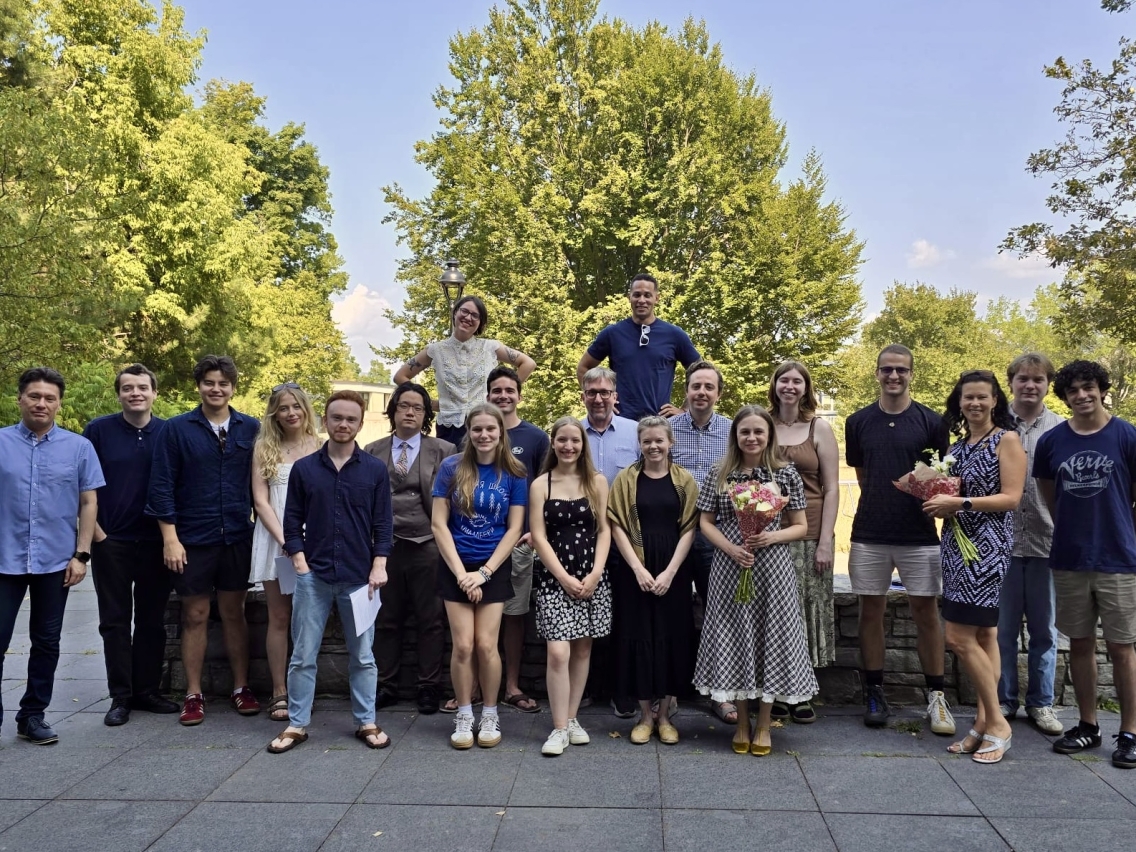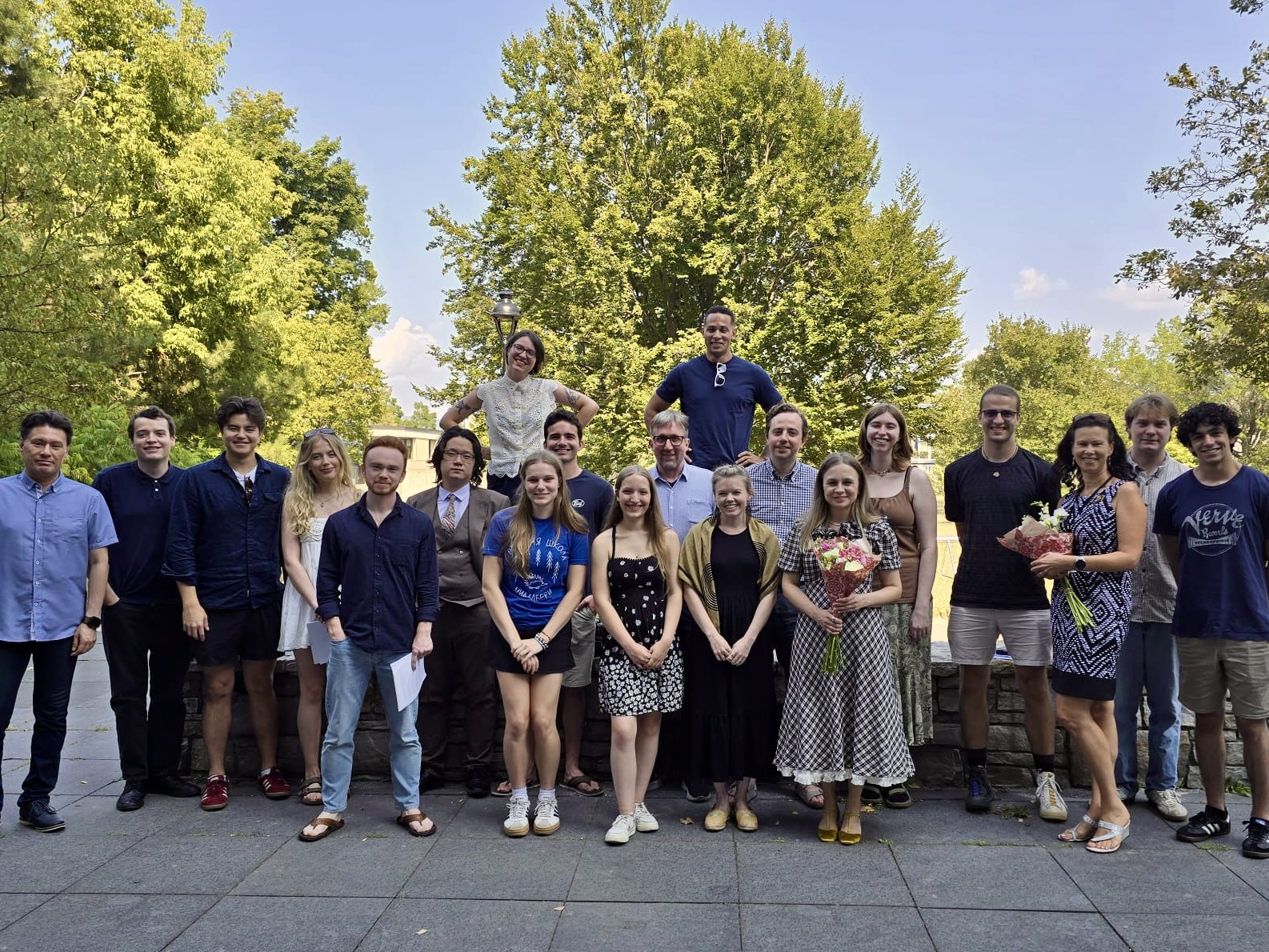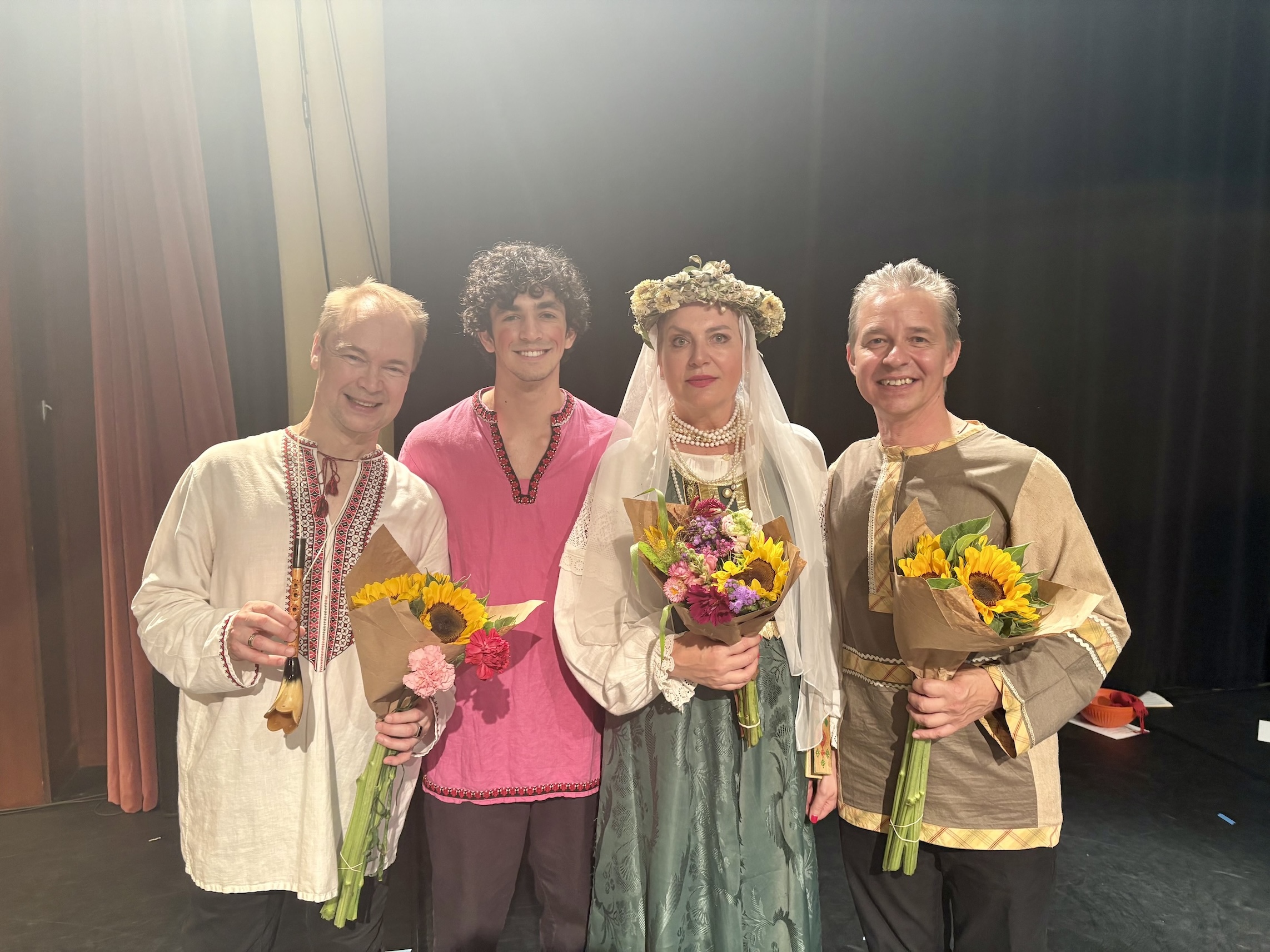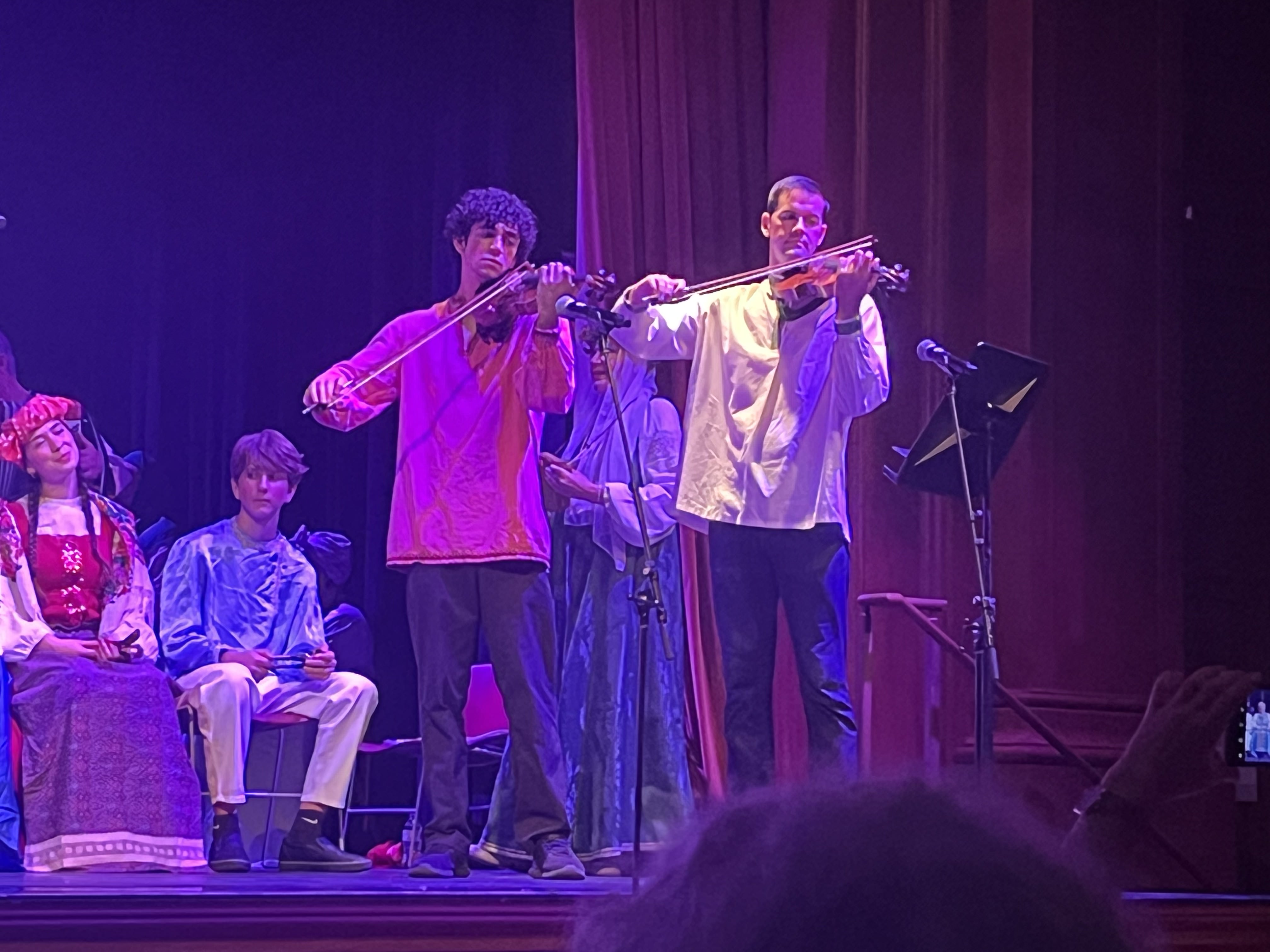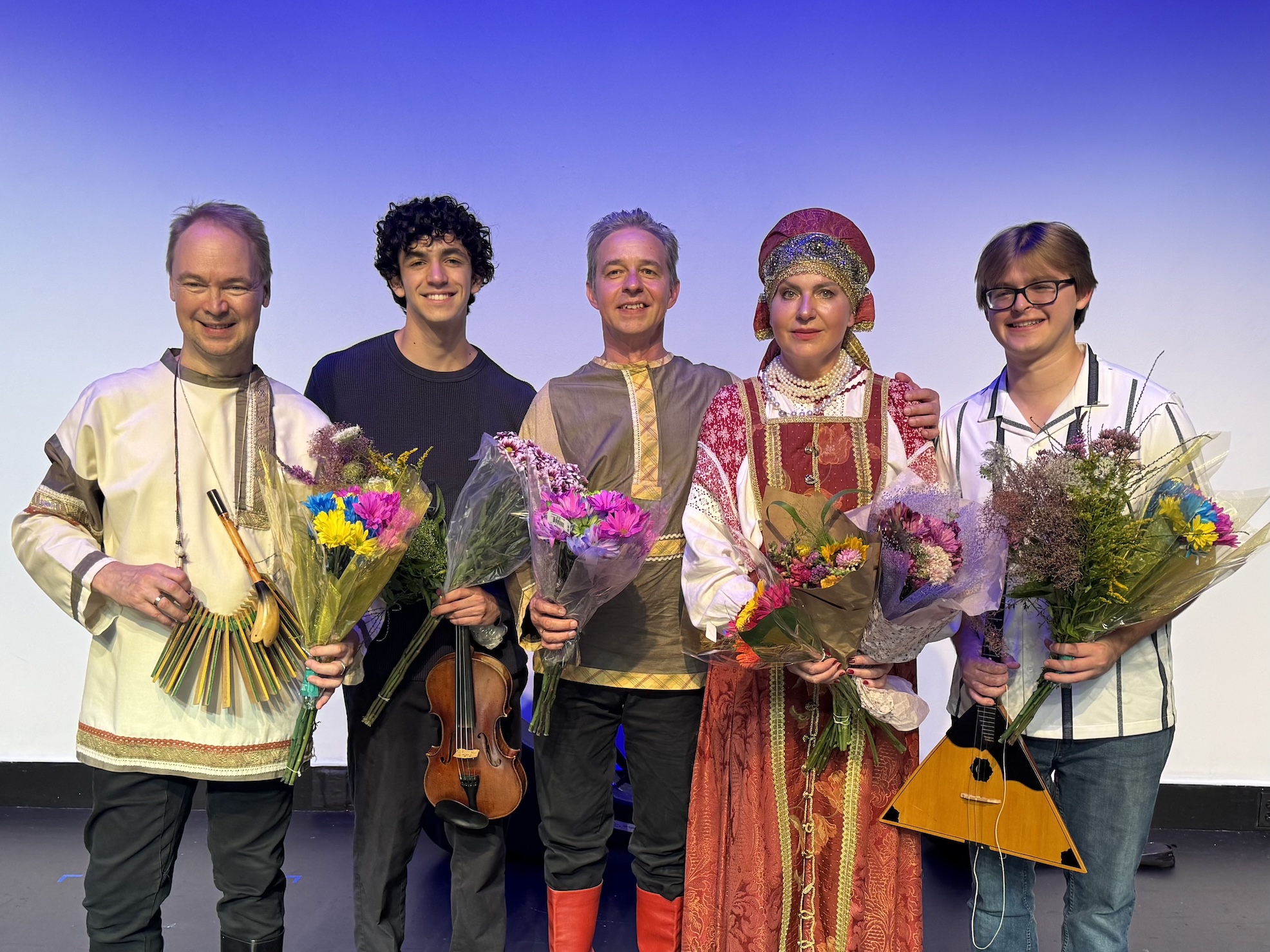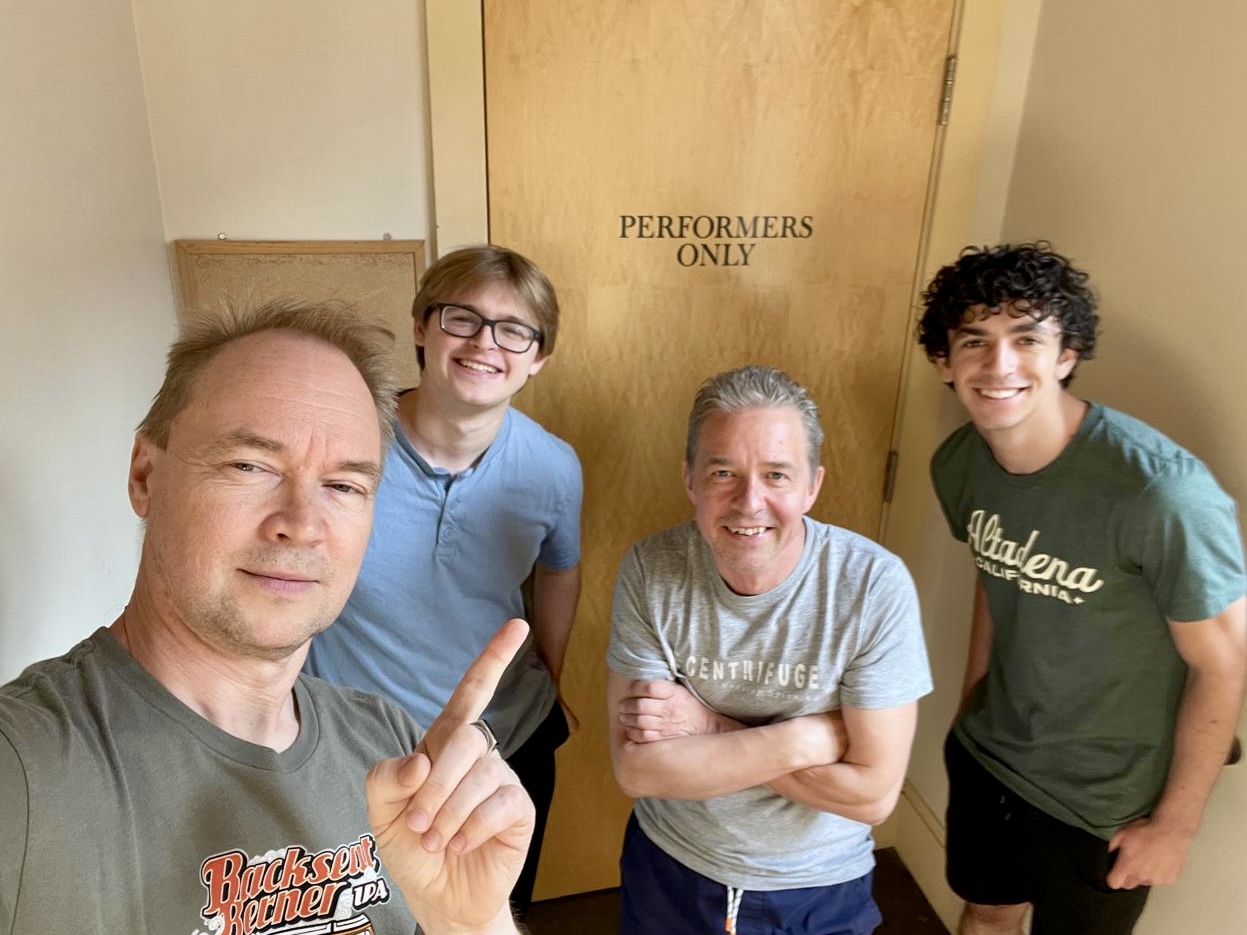Meet 8-week Russian Immersion Student: Maxwell Goodman
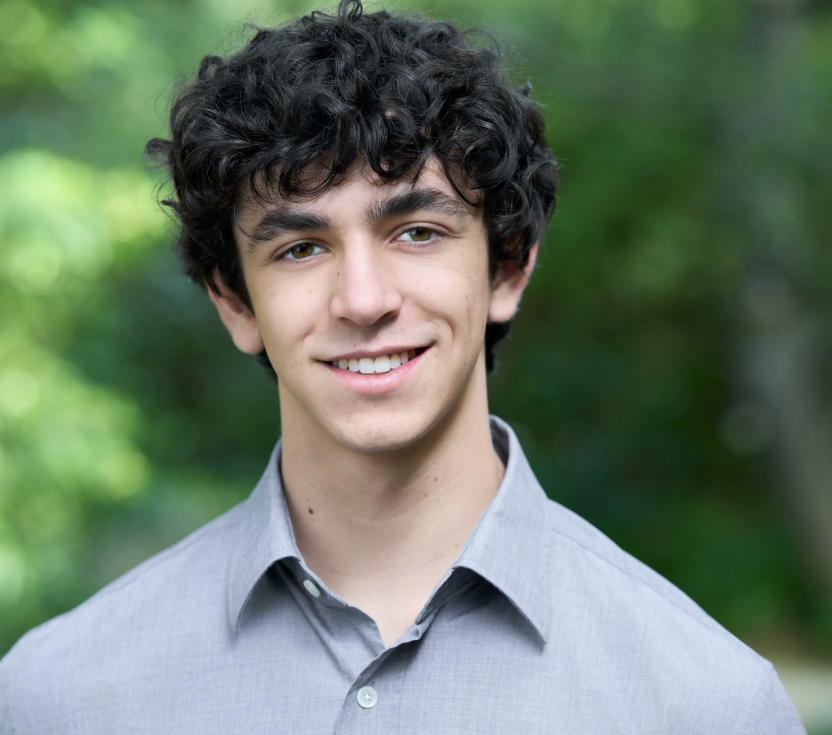
As a historian, violinist, and someone with Belarusian roots, Max Goodman’s choice to attend the Kathryn Wasserman Davis School of Russian felt personal. He was already deeply invested in Russian culture and history, and Middlebury uniquely combined that motivation with the academic structure and immersive intensity he needed to grow.
Maxwell Goodman
Hometown: Los Angeles, California
Program: 8-week immersion
Level: 3
Current: Northeastern University
Why did you choose to study at our School of Russian?
I was drawn to Middlebury’s School of Russian for its uncompromising approach.
The Language Pledge® turns everyday life into a challenge—demanding that students not only study Russian but live it.
That challenge, reinforced by a community of equally committed peers, was exactly what I was searching for.
I was equally motivated by the School’s history. Founded just after WWII, it trained generations of students throughout the Cold War, and that legacy signaled to me that this program has been refined and perfected over decades.
As a historian, violinist, and someone with Belarusian roots, the choice also felt personal.
I was already deeply invested in Russian culture and history, and Middlebury uniquely combined that motivation with the academic structure and immersive intensity I needed to grow.
What surprised you about your experience at the School of Russian?
What surprised me most was the sense of camaraderie. Even advanced students went out of their way to include those in lower levels, pulling us into conversations and making every interaction feel like an opportunity for growth. That spirit extended beyond the classroom—our soccer team, though far from the strongest, became a space to bond in Russian while playing against students from other immersion schools who were also bound by their pledges.

Rather than creating pressure or hierarchy, the program fostered a culture where everyone’s progress mattered, and intensity came with encouragement.
Coming from intensive classical music programs, I thought I understood rigor and focus. But Middlebury felt different: here, intensity came with encouragement. Rather than competition, it was collaboration—an entire community striving toward the same goal.
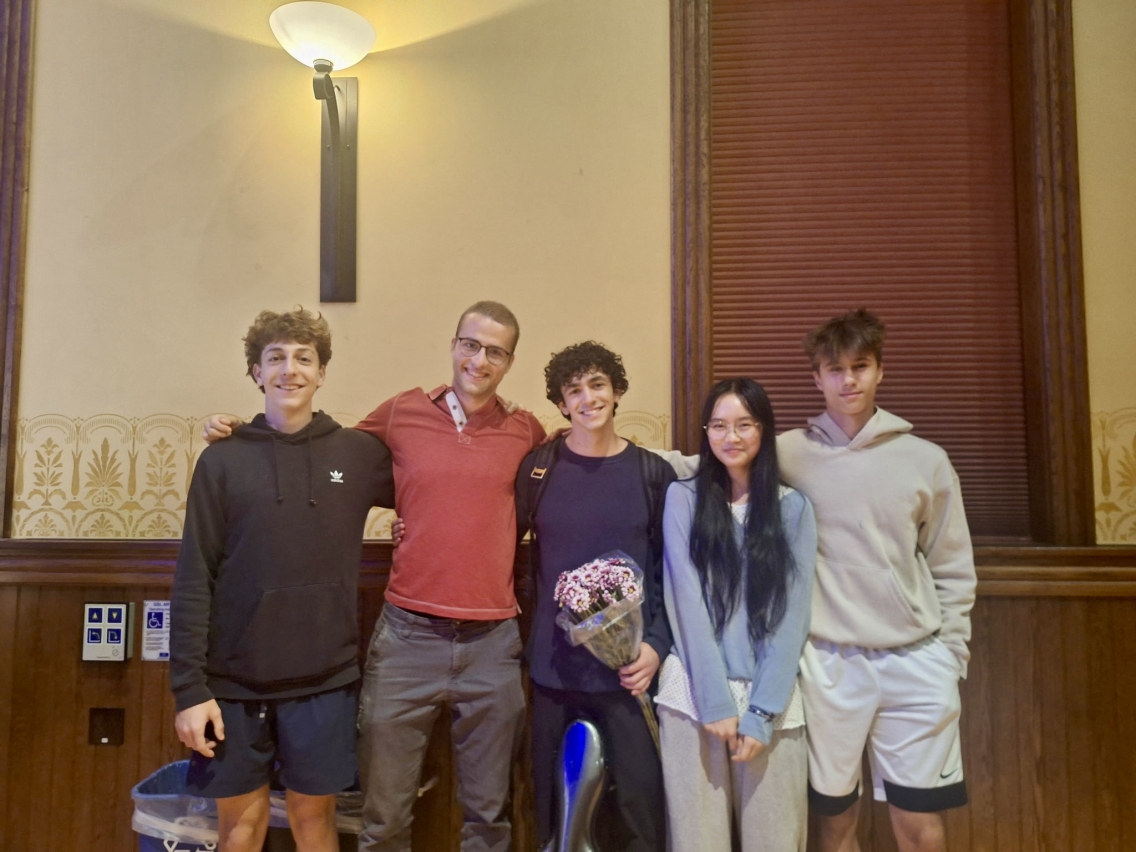
That combination of discipline and solidarity was something I had never experienced before, and it made my progress not only possible but deeply meaningful.
Please describe how your language skills improved due to your studies at Middlebury.
When I arrived, I placed into Level 2, but I chose to challenge myself by moving into Level 3. It was one of the most demanding academic steps I’ve taken, yet it became the most transformative.
By the end of the summer, I wasn’t just learning Russian—I was casually conversing and even thinking in it. That mental shift marked a real turning point in my language journey.
My skills grew in every area, but especially in speaking and listening. What Middlebury offered was irreplaceable: the chance to practice vocabulary, phonetics, and grammar every waking moment, hearing and using the language across different accents, registers, and contexts.
Like with violin, where full immersion in practice leads to breakthroughs, the Russian School gave me a rare period of life where everything else faded away and I could devote myself entirely to one pursuit.
That intensity was sometimes exhausting, but it was precisely what made the progress so rewarding.
Describe your typical day at the School of Russian.
A typical day began around 8:00am with breakfast, where I ate with friends and reviewed vocabulary or declensions to get my mind in gear. From 9:50 to 12:50, classes rotated between reading, conversation, and grammar—each lesson building on the last.
Lunch was both social and academic—I caught up with close friends but also sought out new voices to keep stretching my conversational comfort zone. In the afternoon, we had another grammar session applying the morning’s concepts. After class, I usually headed to the library to work on essays or homework, unless I had a scheduled consultation.
Later in the day, I balanced my musical life with Russian—choir rehearsals or violin practice gave me space to recharge while still staying immersed. Dinner mirrored lunch: conversation, reflection, and more practice, often with friends who became like family.
Most evenings ended at the “Grille,” where the atmosphere was more relaxed than the library but still productive—a place to study late into the night before returning to the dorms.
Every day felt packed and purposeful, a rhythm that kept me constantly moving forward!
What advice would you give someone wanting to attend the School of Russian?
My advice is to give yourself fully to the program. Middlebury is unique, and its intensity pays off when you commit not only academically but also culturally. Take advantage of the clubs and activities—whether Russian cooking, slang workshops, theater, or (for me) playing Russian folk music. These experiences make the language feel alive beyond the classroom.
I also believe it’s important to remember that life will always throw challenges your way, even in immersion. When that happens, what matters most is the effort—continuing to show up, stay engaged, and do your best to maintain the pledge.
Finally, use office hours and consultations as much as you can.
The professors here are extraordinarily generous and insightful, and those one-on-one conversations often led to my biggest breakthroughs.
Don’t let confusion linger; Middlebury works best when you lean on the community and keep striving for clarity.
What are you up to now?
This fall I’ll be returning to Boston as a rising sophomore studying History and International Affairs. As a 2025 Jeffrey Burds Fellow, I will assist Professor Erina Megowan on research into Soviet war journalism and cultural propaganda during World War II. In addition, I will intern with the United Nations Association of Greater Boston, chairing conference committees and writing and editing conference materials. I’ll also be serving as Assistant EVP of Northeastern’s International Relations Council.
Alongside these roles, I will continue advancing my Russian language coursework and hope to expand my studies beyond campus by engaging with Boston’s broader Russian-speaking and cultural community. As a classically trained violinist, I will also continue pursuing my passion for music at the New England Conservatory.
Connect with Max or another School of Russian immersion ambassador.
Gather your materials to apply to our immersion, Heritage, Advanced Online, Online Refresher, or graduate programs at the Kathryn Wasserman Davis School of Russian.
Applications for the Summer 2026 session open on November 3, 2025.


